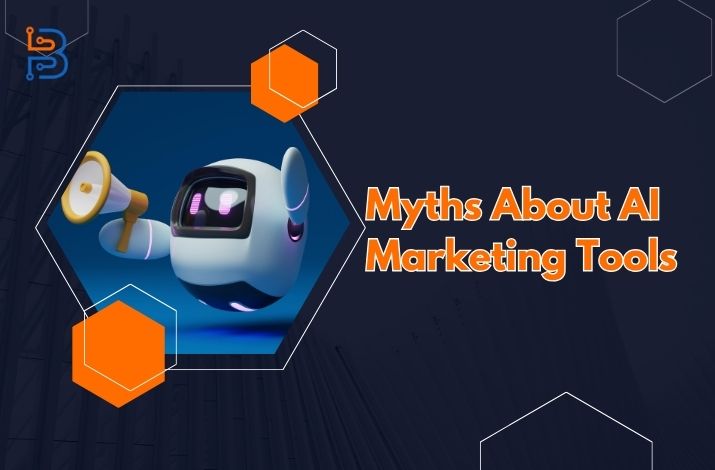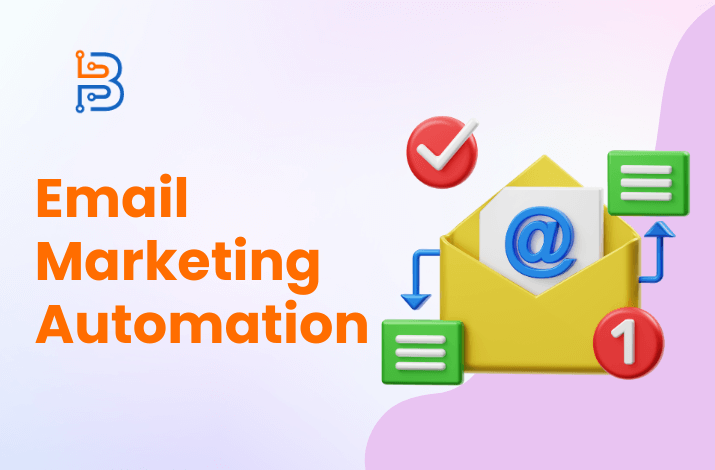Myths About AI Marketing Tools Debunked

A massive change occurred after the arrival of ChatGPT by OpenAI in this world. There was a time when only a few knew about how powerful AI is, but nowadays, everyone knows about it.
Not only that, but there are also some rumors running around that AI will take over many people’s jobs or it will be a great threat to humanity.
This is not true at all.
Some big and successful businesses have also seen an enormous change (in a beneficial way) after utilizing AI marketing tools.
According to CPA Practice Advisor, 91% of small businesses have clear that AI has helped make their businesses more successful.
These tools have helped them a lot in getting more knowledge about the audience, personalizing messages, gathering information, creating buyer personas, etc.
So, in today’s article, we are going to expose (debunk) some myths running around regarding AI marketing tools.
Let’s get started!
AI Marketing Tools Debunked:
Digital marketers everywhere are enthralling about the promising capabilities of artificial intelligence in marketing. AI marketing tools encompass cutting-edge software applications engineered to assist marketers in dissecting intricate data sets, streamlining repetitive tasks, and enhancing the effectiveness of marketing campaigns. Below are several prominent discussions regarding the future of artificial intelligence in the field:
Myth 1: AI Marketing Tools Can Replace Human Marketers
One of the most persistent myths about AI marketing tools is that they can entirely replace human marketers. While AI has the potential to automate many repetitive tasks and provide valuable insights, it must maintain the creative thinking, strategic planning, and emotional intelligence that human marketers bring to the table. AI tools are designed to assist marketers, not replace them. AI can handle tasks like data analysis, segmentation, and even content generation to some extent. Still, it cannot understand complex human emotions, cultural nuances, and context that are crucial in marketing. Human marketers are essential for crafting compelling brand stories, building customer relationships, and making strategic decisions that align with a company’s overall goals.
Myth 2: AI Marketing Tools Are Only for Big Businesses
Another common myth is that AI marketing tools are only accessible to large corporations with extensive budgets. While it’s true that some advanced AI solutions can be expensive, there is a growing market for AI tools that cater to businesses of all sizes. Many AI marketing tools are available on a subscription or pay-as-you-go basis, making them affordable for startups and small businesses. These tools often provide essential features like email marketing automation, chatbots, and predictive analytics, which can help businesses improve their marketing efforts without breaking the bank. Additionally, some open-source AI tools and platforms are available for those with the technical expertise to customize and deploy them, further democratizing AI in marketing.
Read Also: Biggest Ethical Considerations in Artificial Intelligence
Myth 3: AI Marketing Tools Can Instantly Deliver Results
Expecting immediate results from AI marketing tools is a common misconception. While AI can significantly enhance marketing efficiency and effectiveness, it is not a magic wand that produces instant outcomes. Implementing AI tools requires time and effort to set up, configure, and train the algorithms to perform optimally. AI systems need data to learn and improve their performance. Initially, you may not see dramatic improvements, but as the AI models learn from your data and user interactions over time, you can expect more significant results. Patience and ongoing optimization are crucial to reaping the benefits of AI in marketing.

Myth 4: AI Marketing Tools Can Replace the Need for Data Analysts
AI marketing tools are excellent at processing and analyzing data but are not a substitute for skilled data analysts. Data analysts play a crucial role in interpreting the insights generated by AI tools, validating the accuracy of the data, and providing strategic recommendations based on their domain knowledge. AI tools can automate many data-related tasks, such as data cleansing, segmentation, and trend analysis. Still, they cannot replace the human ability to ask the right questions, design experiments, and make informed decisions based on the data’s context. Data analysts work with AI to ensure the insights generated are actionable and align with the organization’s goals.
Myth 5: AI Marketing Tools Are All the Same
Not all AI marketing tools are created equal. A wide range of AI applications in marketing are designed for specific purposes. Some AI tools focus on natural language processing (NLP) and are ideal for chatbots and content generation. Others excel in image recognition and are helpful for visual marketing and social media. AI tools also specialize in customer segmentation, predictive analytics, and recommendation engines. The choice of AI marketing tools should align with your marketing goals and needs. Evaluating different solutions and understanding their capabilities and limitations is essential before selecting the one that best suits your business.
Myth 6: AI Marketing Tools Are Too Complex to Implement
AI technology can be complex at its core, but marketers are increasingly finding user interfaces and platforms that are becoming more user-friendly. Many AI marketing tools cater to non-technical users, providing intuitive dashboards and easy-to-use features. They offer pre-built models and templates that can be customized to meet your specific requirements. Implementing AI in your marketing strategy may require learning and adjustment, but it is not as impossible as some myths suggest. Many providers offer training and support to help users get started with their AI tools.
Myth 7: AI Marketing Tools Are Infallible
AI marketing tools are powerful, but they are not unfailing. They rely on algorithm data, and their accuracy depends on the quality and quantity of the data. Biases in data or flawed algorithms can lead to incorrect predictions or recommendations. It’s essential to use AI marketing tools as aids rather than relying on them blindly. Human oversight is necessary to ensure that the AI-generated insights align with your business goals and ethical standards. Regular monitoring and validation of AI-generated recommendations are crucial to avoid potential pitfalls.
Myth 8: AI Marketing Tools Are a One-Time Investment
Implementing AI marketing tools is a long-term investment. As the marketing landscape evolves and your business grows, your AI tools will need continuous updates and refinements to remain effective. AI models require ongoing training and optimization to adapt to changing customer behaviours and market trends. Moreover, as new AI technologies and tools emerge, staying informed and evaluating whether incorporating new solutions can further improve your marketing efforts is essential. AI in marketing is a dynamic field, and businesses that stay agile and open to innovation are more likely to reap its benefits.
Myth 9: AI Marketing Tools Will Replace Customer Service Teams
AI-powered chatbots and virtual assistants are becoming increasingly prevalent in customer service, but they are not a wholesale replacement for human customer service teams. While chatbots can handle routine inquiries and tasks efficiently, they need to gain the empathy and problem-solving abilities humans bring to customer interactions. Human customer service agents excel in handling complex issues, providing personalized solutions, and building genuine customer connections. AI can complement human customer service teams by automating routine tasks, allowing agents to focus on more challenging and value-added aspects of their roles.
Myth 10: AI Marketing Tools Can Predict the Future with Certainty
AI marketing tools can make predictions based on historical data and patterns but cannot predict the future with absolute certainty. Predictive analytics can provide valuable insights into potential outcomes, trends, and customer behaviours, but they always come with uncertainty. Using AI-generated predictions as a guide rather than a guarantee is essential. Businesses should be prepared to adapt their strategies based on changing circumstances and new information. The dynamic nature of markets and consumer behaviour makes it impossible for AI to provide infallible future predictions.
Final Words
Dispelling the myths surrounding AI marketing tools is essential to harness their true potential. While AI has remarkable capabilities to enhance marketing efforts, it is not a panacea but a powerful tool that complements human expertise. Recognizing the nuances of AI’s role in marketing, debunking misconceptions, and understanding its capabilities and limitations are crucial for businesses aiming to leverage this transformative technology effectively. Organizations can navigate the evolving marketing landscape with clarity, creativity, and confidence, harnessing AI as a valuable ally in reaching their goals with the help of AI marketing tools.






